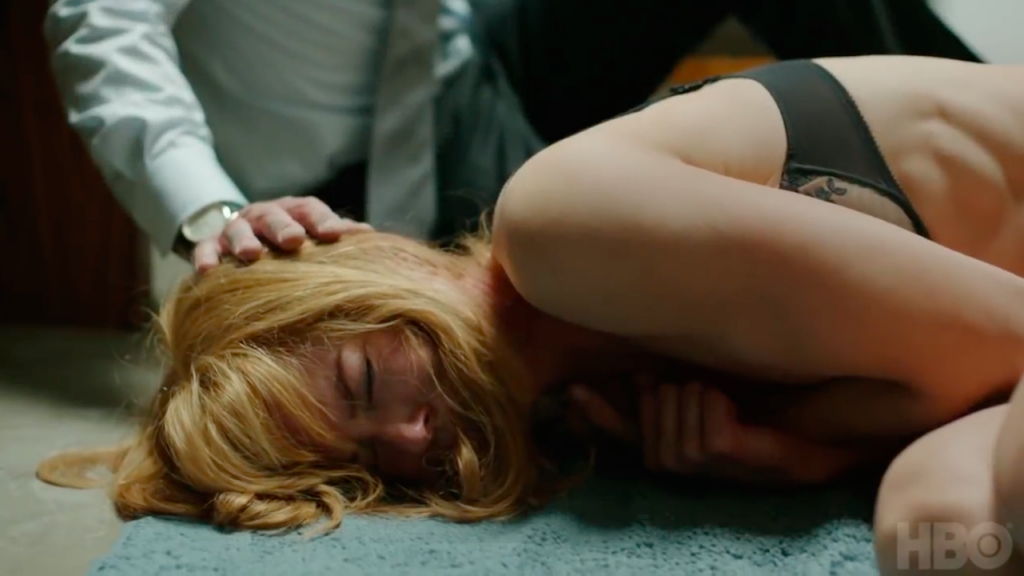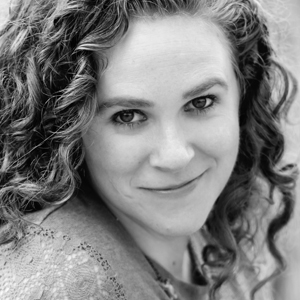Leaving Troubling Characters on the Stage
We had just finished rehearsal for a play I was directing. The actors were packing their bags and heading out into the hot and sticky summer day, some off to work and others back home. One actor lagged behind. She approached me, wide-eyed, her hands shaking. “I can’t leave,” she said. “You have to help me.” She paced back and forth, as if she were uncomfortable in her own skin. It had been an intense rehearsal. We’d been working on an emotional scene, in which her character recounts the death of her brother.
I wasn’t surprised she was feeling unsettled. I had experienced this myself as an actor after powerful rehearsals and performances. I’ve come to discover that this is common among performers, but most of us don’t know what’s happening and, consequently, never learn how to deal with it. Many never even talk about it. And that, to me, is a big problem.
* * *
Acting is more than just speaking lines while moving feet; it’s an emotional and energetic experience. As actors, we are asked to dive inside the minds and hearts of our characters, live their lives and feel their feelings. Often, we meet these characters at intense moments in their stories, when they are changing or struggling in some way, and then we live with them in this state. Over and over, throughout rehearsals and the run of the show, we revisit their emotional arc.
It’s hard for our characters’ emotions to not permeate our own minds. And it can be hard for us to leave those feelings behind when we walk off stage. The problem is that if we don’t, they will follow us back into our everyday lives.
I’ve heard many examples of this: actors retaining the physical or mental ticks of their characters long after a show has closed, becoming infatuated with their scene partners in real life after performing a romantic plotline, or getting anxious or fearful at home after embodying characters with the same feelings. In fact, most actors I know can tell a story of being personally impacted by the unwanted or troubling side effects of performing a particular character.
Why does this happen? According to Lesley Martín, licensed mental health counsellor and owner of WNY Holistic Counseling Center, there are a couple possible reasons.
Martín sees a link between these post-performance experiences and a psychological phenomenon called vicarious trauma. “What that means,” she says, “is that a person would experience the effects of being traumatized without directly experiencing the event themselves.” Performing a disturbing incident in a scene can lead to this, and the more you repeat the scene, the deeper this sense of personal trauma can become. Actors can be especially vulnerable because, as Martín puts it, they are particularly susceptible and sensitive.
Which brings up another possible issue: boundary violation. As actors, one of our biggest jobs is to respond to our scene partners, which requires us to tune in to their emotional and energetic offerings in a deep way. But by tuning in so deeply, sometimes the line between our characters and our real selves becomes blurred, and we feel the emotions of the scene on a personal level. One reason this can happen, Martín says, is because of the potential reward. Some actors believe that the more they open themselves to their characters and scene partners, the better the audience will respond. And that’s a difficult reward to say no to.
Martín agrees that there are many examples of actors blurring the lines between their performance experiences and their personal lives. “How many co-stars get together because they were acting like a couple on set?” she asks. “Or how many people act in violent roles and then act aggressively in their personal lives? That happens all the time.”
If this trend is so evident, even to those outside the industry, why aren’t actors taught about the potential negative side effects of performing? And why are there so few practices given to cope with these issues?
One reason is that there is little consistency in how acting is taught. “Most reputable acting methods have some safety mechanisms,” says Sallie Lyons, retired professor of movement at the University of Toronto. Lyons cites as examples the principles that guide the Grotowski river work, which emphasize the need for creating a safe space in which performers can work, or the protocols for Authentic Movement techniques, which cultivate a non-judgmental observer mindset in the performer to prevent emotional or energetic overwhelm. “However,” she continues, “the way they are actually delivered [by instructors] can vary widely.”
Another issue is the length of training actors receive and the time it takes for physical-based methods, like Grotowski or Authentic Movement, to be learned. There is a lot to cover in acting classes, and while many instructors strive to give their students tools to ensure they have fully released their characters and in-class experiences at the end of a class or rehearsal, by doing things like exercises for grounding energy, “sadly there is often a time pressure that impedes this,” Lyons notes. This is especially true of short workshops or courses as opposed to multi-year institutional training programs.
Like Martín, Lyons also sees how performance can impact an actor’s mental health. One challenge, she notes, is that instructors don’t always know the issues or personal experiences their students bring into class. And while performing can provide a healthy way to improve anxiety and stress-related issues, it can also trigger them. Unless students disclose their issues, it’s difficult for instructors to know how best to support them, especially when those issues are triggered.
* * *
Often, actors don’t talk about the impact performing has on their personal and mental health. Many of us may not even have the language to articulate what we experience. And without a discussion, we can’t access the tools we need to prevent these experiences or process them afterwards. This leaves us to turn to our own methods of coping, and some of these methods do us more harm than good.
So what can we do about this? First of all: talk, and talk more. We need to start having open and honest discussions about the mental and emotional toll performing can have on us. We can start this in our classrooms and our rehearsal halls, raising awareness around the importance of boundaries in our artistic work and putting language to its challenges. But we also need to have these discussions in the bars we frequent after shows, where excessive drinking, mood swings, and change in normal behaviour can be indicative of someone’s struggle with the negative side effects of performing. If we can identify this and name what’s going on, it will be easier to find the right support and prevent these side effects from happening.
Second, we need to develop our own post-show or post-rehearsal cool downs and actively work them into our performance routines. For actors, warm-ups are important to prepare us for our time onstage. They allow our bodies and minds to transition from our lives offstage into performance mode, and we hold space for ourselves to do them. But we also need time to transition out of our characters and their world once we’re done onstage, so that we can move back into feeling grounded and centered as ourselves. And while the adrenaline rush of performing can make a cool down feel unnecessary, it’s precisely this excess, frenetic energy that can cause deeper issues to arise. A cool down routine doesn’t have to be long or complicated. Many of the physical and breath exercises used in warm-ups can work here too. But actors have to make space to do it.
Third, instructors and directors need to provide support for performers, especially when working on challenging material. They can do this by fostering open dialogue with their ensembles at the beginning of rehearsals and providing resources for artists so they know what to do if issues come up. This can include making time in rehearsals to guide actors through releasing their characters and experiences, or bringing in mental health professionals to help set up protocols for the group as they work. These same practices can be applied to workshops and classes, and training institutions can encourage frank discussions about performing and mental health. Instructors and directors don’t have to have all the answers, but they can act as important facilitators in connecting artists with tools for support, and they can model healthy boundary setting and performance practices within their spaces.
In truth, there’s no quick and easy solution to the negative impact performing can have on actors. And as with any complex issue, real change will happen only if we address it on multiple levels. But that’s only possible if we start talking first.
As for the actor who approached me after that rehearsal? By speaking up about the difficulty she was having, together we developed a practice that helped her feel grounded and secure for the rest of our rehearsals and the show’s run. One conversation made all the difference.









Comments